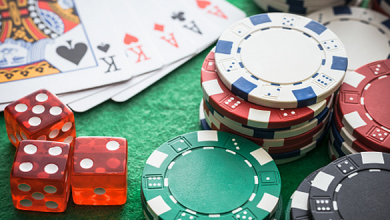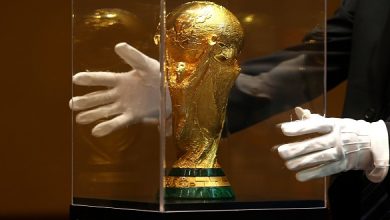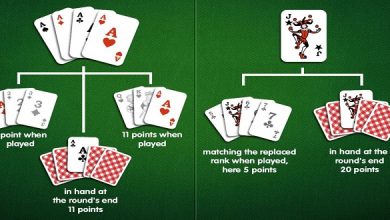Probability, Odds, and a Bit of Luck: What You Need to Succeed

Defining Luck: A Temporary Fluctuation
Unfortunately, too many newbie gamblers rely on luck to guide their experiences. Casinos can be an easy place to burn through money, so your best chance for hanging on to that hard-earned cash is through a bit of dose of knowledge. But, you wonder, when it comes to striking it rich in the casino, isn’t there such a thing as luck? Technically, the answer is yes — but don’t count on your rabbit’s foot to keep you on the path to riches over the long haul. The term luck can describe many situations, especially in gambling. Someone may have a lucky run at the baccarat table, or maybe your Aunt Rosemary plays a random slot machine that never loses.
Understanding the Role of Probability
Millions of merry gamblers frequent casinos worldwide every day without a clear understanding of one important concept — probability. Of course, mastering one of the more complex branches of mathematics isn’t necessary for successful gambling. But an elementary knowledge of probability is undoubtedly helpful in making sound gambling choices.
Identifying independent events
Another essential term to understand here is independent outcomes. Being independent has nothing to do with successfully ditching your loser boyfriend in the keno lounge. In gambling, independent refers to events (such as roulette spins or dice throws) that aren’t affected by previous results. Craps and roulette are great examples. The dice and roulette table ball don’t have a tiny brain inside, so each new throw or spin is independent of all previous turns. In other words, the dice or ball doesn’t know what numbers are running hot or cold, so the probability of an outcome for every spin is the same.
Slot machines are also independent. Recent jackpots do not change the likelihood of the same combination coming up again. If your chances of lining up three cherries are 5,000 to 1 and you just hit the jackpot, the three cherries have the same chances of appearing on the very next spin.
Recognizing dependent events
So you may be asking yourself, what constitutes a no independent or dependent event? Dependent events are more or less likely occurrences based on the previous circumstances. For example, imagine a bag of five black balls and five red balls. Before you pull a ball out, you know you have a 50 percent chance of pulling out a black ball and the same odds of pulling out a red ball. Then you reach in and pull out one red ball and toss it aside. Now the odds have changed — you no longer have a 50 percent chance of pulling either ball. Your chances of pulling out a black ball are now greater (56 percent).
Examining How Casinos Operate and Make Money: House Edge
The seasoned gambler can count on true odds to dictate the chances of winning a particular game, right? Not exactly. Casinos aren’t in the charity business — they exist to make money. And like all successful enterprises, they follow reliable business models. So with their intimate understanding of probability and odds, casino owners guarantee themselves a healthy bottom line.
So you can’t beat the odds when the house arranges them in its favor, but you can understand the odds of winning inside a casino by arming yourself with information about the house edge. The house edge (sometimes known as the casino advantage or house advantage), by definition, is the small percentage of all wagers that the casino expects to win. Every game has a different house edge, and even specific bets within a single round have a better house edge than other bets.
Paying less than the true odds
Another way the casino makes money is to pay out less than the true odds (see the earlier section “Factoring in the odds”). Take roulette: With 38 numbers on the wheel, your odds of guessing the winning number are 37 to 1. So you bravely place a $100 bet on a single number and hit it. Congratulations! After you quit jumping up and down and kissing the cocktail server, dealer, and anyone else who couldn’t quickly escape, you collect $3,500.
Muddying the odds
Casinos offer three types of games — games with fixed odds, games with variable odds, and games where skill can affect the odds. They all have different play styles and appeal to different kinds of gamblers. Although you should naturally gravitate toward the most fun games for you, you need to be clear on the three classes of games. This section looks at the three types more closely.
Calculating the Odds in Casino Games
With dice, for example, you have 36 different combinations, and the odds are 35-to-1 for each variety. But with other games, the odds can be impossible to calculate. Take slots, for example; the thousands of possible reel combinations and ever-changing progressive jackpots make it difficult for anyone to calculate the odds of winning.
Summary
You can easily get caught up in the chase. Everyone enjoys winning more than losing, and no one likes to come home defeated. But it would help if you remembered that no one wins every trip or every day, or every session. Gambling is all about educating yourself about the long odds you face and selecting the best bets in the casino. So keep this advice in mind: Losing a small amount and walking away is far better than dumping a bundle trying desperately to get even.





